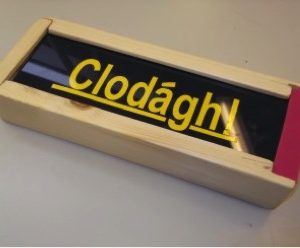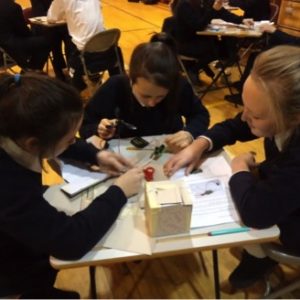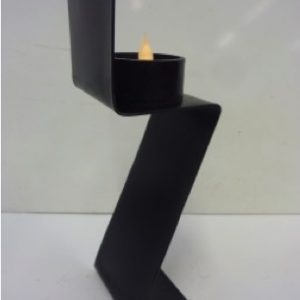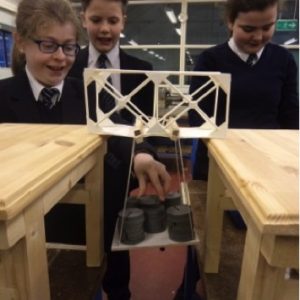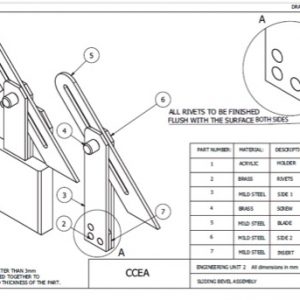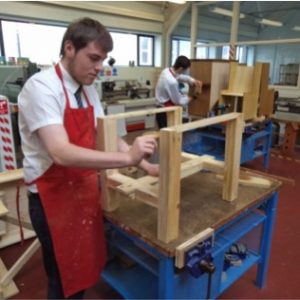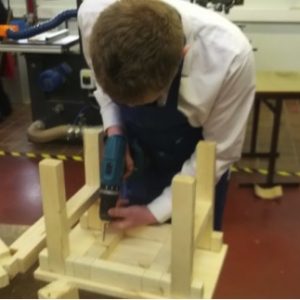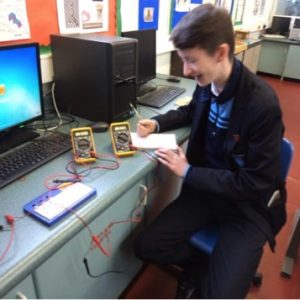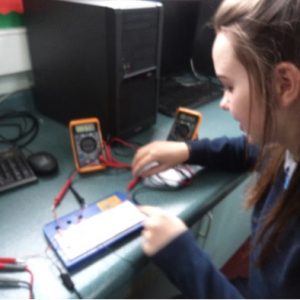Mr A. Logue (HOD)
Barry Mc Cann (Technician)
The D&T Subject department are committed to planning, developing and delivering a programme which provides students with the broadest possible range of opportunities. At the heart of this is the desire to deliver a curriculum which has creativity at its core. Students are engaged in the analysis and solving of real problems leading to the production of high quality outcomes. This is achieved through imaginative teaching and learning, that embraces new technologies, whilst retaining the best of traditional practices. Above all we aim to encourage a creative and innovative atmosphere, which allows students to take risks and experiment in a safe and positive environment, all of which is underpinned by secure knowledge and understanding.
At Key stage 3 we aim to deliver the Northern Ireland Curriculum through a variety of design and make tasks using a range of materials and processes.
How will I be assessed?
Students will be assessed in a variety of ways including marking of classwork and homework, peer assessments, end of unit tests and a final end of year test on all the topics covered throughout the year.
Useful links
Engineering is the application of knowledge, mathematical and natural sciences, and practical experience to the design of useful objects and processes. It is, in short, the pursuit of economy, conservation and innovation.
“Strive for perfection in everything you do. Take the best that exists and make it better. When it does not exist, design it.” – Sir Henry Royce, Engineer
Engineers strive to make science serve society by putting theory into practice. It can be said that engineering began with the very first tool fashioned by Paleolithic man 2 million years ago. Today its impact is immeasurable and its application for the future, limitless
What will I study?
Through studying GCSE Engineering students will:
- gain core knowledge and understanding of the engineering industry;
- begin to understand the contribution that engineering makes to society and the economy;
- develop and use a range of transferable skills, including computer aided design (CAD) and technical skills, to design and make engineered products;
- develop an awareness and understanding of environmental issues and sustainable development;
- develop an awareness and appreciation of commercial and industrial issues and emerging technologies in the context of engineering;
- apply their knowledge and understanding of engineering by using evaluation and problem-solving skills; and
- develop as effective and independent learners.
How will I be assessed?
GCSE Engineering Consists of 3 main Units:
Unit 1: Engineering Design and Graphical Communication: (30% of Award) This unit is about the process of designing. Students analyse a client brief, detail production constraints, develop a range of design specifications and choose a final design solution. They produce engineering drawings of their final design to test it against the original brief and to present information to the client.
Unit 2: Engineering Production: (30% of Award) Students make an engineered product made up of two different materials
Unit 3: Engineering Technology: (40% of Award) There may be some links between this unit and the other two. In it, students learn about:
- engineering materials and their properties/functions;
- quality control techniques;
- new technology used in and by the engineering industries;
- impact of modern technologies; and
- engineered products.
Useful links
Studying Engineering will provide you with the opportunity to gain well-paid, prestigious employment, equipped with skills recognized around the world. Engineering is recognised as critical for the development of a knowledge economy. Equivalent to 1 A-Level, this course is preparation for a range of technical and management careers in engineering, and includes specialised studies which are directly relevant to professions in which you may intend to seek employment.
What will I study?
Throughout the 2 years students will study a range of units which will allow them to achieve the qualification. These units are as follows:
Year 1:
Unit 1- Health and Safety in the Engineering Workplace
Unit 6 – Electrical and Electronic principles
Unit 16 – Engineering drawings for technicians.
Year 2:
Unit 4 – Mathematics for engineering technicians
Unit 10 – Properties and applications of engineering materials
Unit 35 – Principles and applications of electronic devices and circuits.
How will I be assessed?
Students will complete assignments on each of the units and will be graded either as a FAIL, PASS, MERIT or DISTINCTION. These grades will be collated throughout the 6 units and using a point scale a final grade will be achieved.
Useful links
www.bbc.co.uk/schools/gcsebitesize/design/electronics

